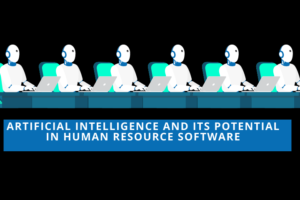The government of India's Startup India 2020 initiative has sparked the entrepreneurial spirit in many people. Many people have taken the risk of developing a business plan based on unique ideas. Business plans clearly explain the Start-objectives up's as well as how it intends to achieve them. Most company plans cover everything from finances to marketing to operations, but the Human Resource component of the organization is frequently overlooked and the HR Department is the key component for any organization.

Whether you are a small start-up with less than 10 workers or a large corporation, failing to include the human resource component in your planning stage can prove to be an expensive mistake in the long run. The most prevalent misconception is that HR is just about managing people and paying salaries and that most business owners have the fundamental common sense needed to do so.
Role of an HR Department in a company?
HR encompasses more than just personnel management and compensation. A do-it-yourself (DIY) approach to HR is terrible, simply because HR is far more sophisticated than it appears. All 7 essential important functions that are critical to the organization's performance should be included in a well-designed and self-sustaining HR. Workforce Planning, Talent Acquisition, Compensation and Benefits, Talent Management, Employee Engagement, Client Relations, and Statutory Compliances are some of the main functions. Each of these main functions, as well as its subsets, must be thoroughly investigated and comprehended in order to ensure that your company's people operations run properly.
Related: Importance of HR Outsourcing for a start-up
People from operations used to be able to go into HR, but that is no longer the case. Specialized talents, qualifications, and credentials are in high demand nowadays. If a company spends more than 20% of its productive hours dealing with HR difficulties, it's apparent that an expert is needed to handle the job.
Over the previous two decades, the HR function has advanced by leaps and bounds, evolving from a personnel department to a COE (Center of Excellence) model. Various verticals act in tandem under the HR umbrella to ensure the seamless operation of the function and, as a result, the organization.
While I emphasize the need for having an HR specialist on staff, I am not suggesting that you should have the HR function or a representative in-house. If you're a small business, you might want to consider an HR agency for your need. Companies typically outsource simply recruitment and payroll; however, modern HR services are capable of setting up and managing your full end-to-end HR process. Alternatively, you might employ a consultant who will work with you on a project basis at first and then assist you in establishing an in-house HR department once your business has stabilized.
Challenges to set up an HR Department in a start-up
1. Creating Policies and Procedures for the Company: The "too tiny to matter" mentality is a common HR blunder among startups. They believe that difficulties are usually dealt with when they emerge and that they do not need to be written out in advance. However, omitting to specify policies and processes and requesting signed compliance to provide employees with a neighborhood to point to once they have a standard for business conduct without describing rules and procedures leads to misunderstanding.
Related: Importance of Training and Development in HRM
2. Creating a Company Culture: A toxic company culture can be harmful to the entire organization's success. Culture should be created to support the needs of the organization.
3. Recruiting Workers: Startups frequently hire people from their personal networks, resulting in haphazard hiring and minimal onboarding. Employees interpret this to suggest that the company is unorganized and not worth their time.
4. Employee Training: When you're just starting up, you can be low on cash and decide to skip employee training. While coaching employees takes time and resources, failing to do so could be far more costly. If you want to rent and keep exceptional employee talent, you should not underestimate HR's ability to provide training in startups.
5. Providing Employee Feedback: Even at a startup, failing to provide regular feedback will quickly lead to the downfall of your company. Employees can determine what they're doing well and where they need to improve by receiving and delivering both positive and negative feedback. This boosts their productivity and eliminates the need to terminate unproductive personnel in the future.
6. Keeping Track of Results: Documentation typically falls by the wayside and is ignored in the fast-paced startup culture—that is, until a critical piece of data is missing. These minor blunders build up and might land you in significant legal problems.
Related: 10 Main Functions of Human Resource Management
7. Retention of Employees: One of the most significant issues is that startup employees often have a poor work-life balance. As a result, some employees use their new skills to advocate for a replacement position at a firm with better lifestyle possibilities after learning new skills at a quick speed as the startup grows. Another problem for startups is keeping staff aligned with the mission and vision of the company. Many employees are driven by a sense of purpose, and they want to know that their purpose is linked with company goals in order to feel good about their work.
8. Firing Employees: There will come a time when you must fire an employee. This will be more difficult and uncomfortable for the manager in a startup because employees are even closer to the management. Keeping such toxic people, on the other hand, will destroy your company, and ignoring the problem will not make it go away.
For Human Resource, Payroll and many more HR Services, visit our website https://lingueeglobal.com/



